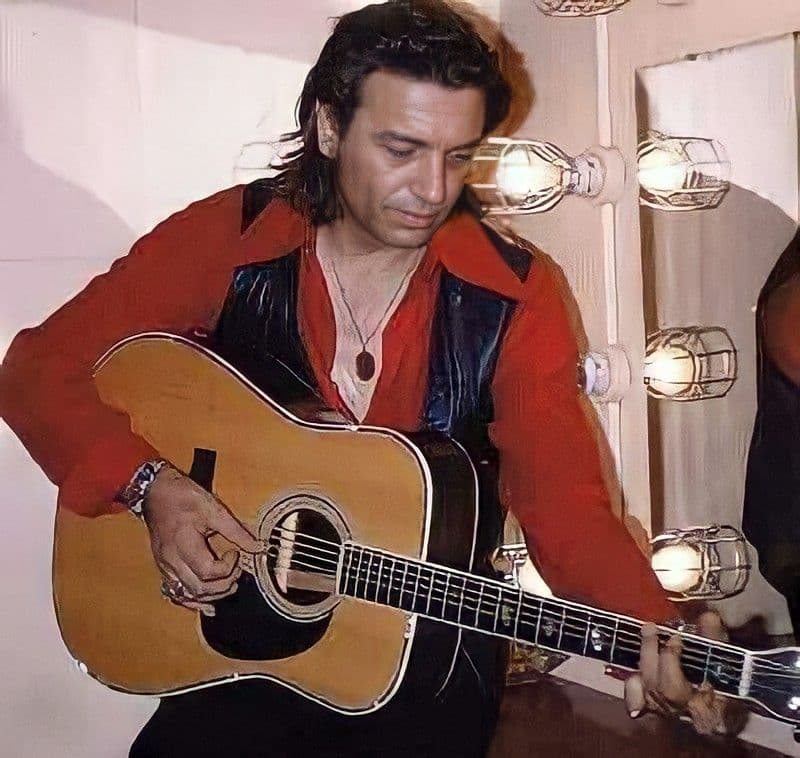
The Outlaw’s Manifesto: A Reflection on Country’s Soul
The 1970s were a time of great change, a period of cultural upheaval that saw a new generation challenging the old guard in every facet of life, and country music was no exception. While Nashville’s Music Row churned out polished, string-laden pop-country confections, a different sound was brewing in the smoky honky-tonks of Texas and beyond. This was the era of the Outlaws, a movement led by a group of maverick artists who felt the genre was losing its soul. At the heart of this rebellion was Waylon Jennings, a man with a baritone as rough as sandpaper and a spirit as free as the open road. His 1975 masterpiece, “Are You Sure Hank Done It This Way,” is perhaps the most iconic and eloquent statement of this musical philosophy.
Released as a single from his groundbreaking album, “Dreaming My Dreams,” the song became an instant classic. It wasn’t just a hit; it was a cultural touchstone, a question posed to an entire industry. The track climbed to a respectable No. 1 on the Billboard Hot Country Singles chart, a testament to its powerful message resonating with a public hungry for authenticity. The song’s success was a powerful affirmation that there was still an audience for the raw, unadulterated sounds of classic country, for the tales of heartbreak and struggle told with a gritty honesty that Nashville’s mainstream machine had largely abandoned.
The story behind the song is as compelling as the music itself. Waylon was frustrated by the rigid formulas and creative control exercised by record labels and producers. He and his fellow Outlaws—Willie Nelson, Kris Kristofferson, and Johnny Cash—were tired of being told what to record, how to sound, and what to wear. They yearned for the freedom to make music on their own terms, to capture the raw energy of their live performances in the studio. “Are You Sure Hank Done It This Way” was born from this frustration. Waylon wrote the song as a direct challenge to the Nashville establishment, a pointed question aimed at the producers and executives who had strayed so far from the genre’s roots. The “Hank” in the title is, of course, the legendary Hank Williams, the quintessential troubadour whose stripped-down, emotionally resonant songs set the gold standard for country music. By invoking Hank’s name, Waylon was asking if the current state of country music, with its elaborate productions and crossover aspirations, was truly in the spirit of the man who wrote songs like “I’m So Lonesome I Could Cry.”
The song’s meaning is a layered tapestry of rebellion and reverence. On one hand, it’s a defiant middle finger to the industry, a declaration that the Outlaws were carving their own path. But on the other, it’s a deeply respectful homage to the pioneers who came before them. Waylon wasn’t trying to tear down the legacy of Hank Williams; he was trying to preserve it. He was reminding people that the heart of country music lay not in glitzy costumes and slick arrangements but in honest storytelling, in the raw emotion of a steel guitar and a soulful voice. The song’s simple, driving beat and prominent electric guitar, a hallmark of Waylon’s sound, stands in stark contrast to the polished sounds of the era, making it an auditory manifesto. It’s a sound that evokes the feeling of a late-night drive down a dusty two-lane highway, the radio playing a song that speaks to your soul, reminding you of a simpler time when music was made for the sheer love of it.
For those of us who came of age during that time, this song isn’t just a piece of music; it’s a memory. It’s the soundtrack to a time when country music felt real, when its heroes were flawed, and its stories were true. It’s a reminder that even in the face of commercial pressure, true art will always find a way to break through. And in that way, Waylon Jennings and his fellow Outlaws didn’t just create a new subgenre; they saved a piece of country’s soul, ensuring that the spirit of Hank Williams would live on, done their way.